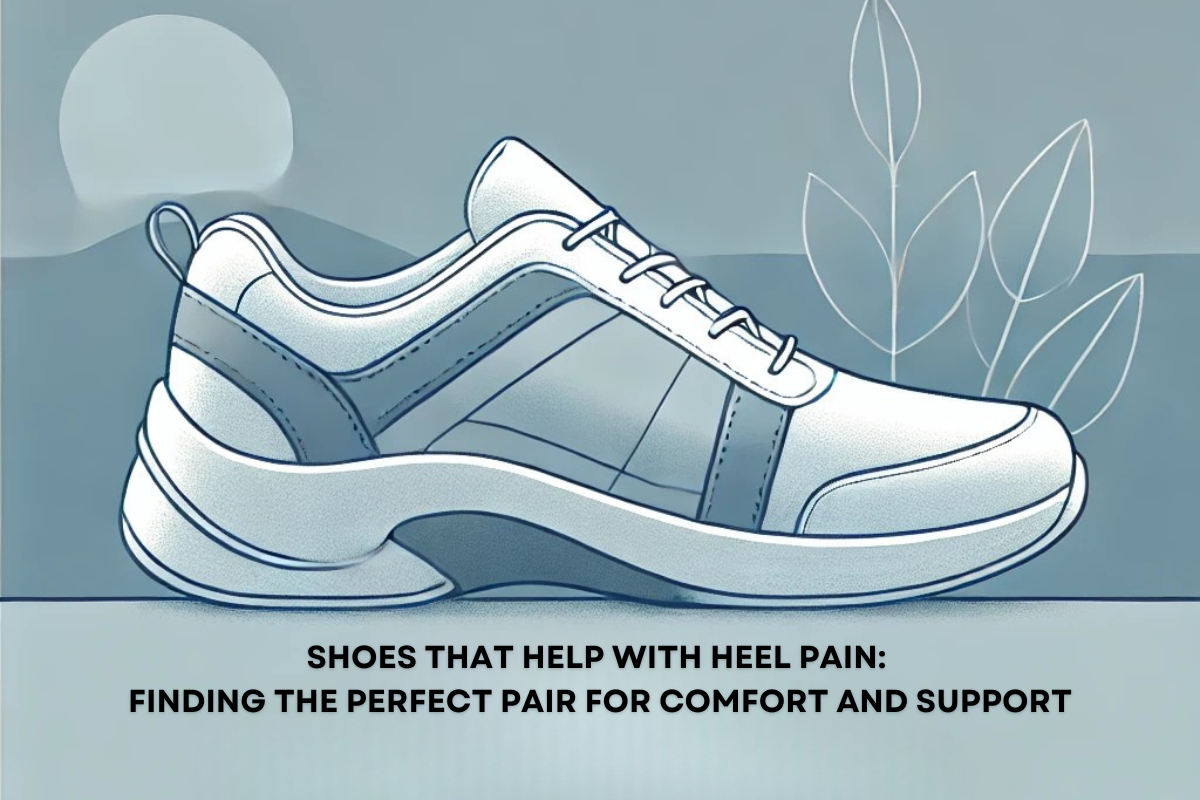Heel pain is a common issue that can make daily activities like walking, running, or standing for long periods incredibly uncomfortable. Conditions like plantar fasciitis, Achilles tendinitis, and heel spurs can all contribute to discomfort, but the right footwear can make a significant difference in reducing pain and providing much-needed support. If you’re struggling with heel pain, choosing the proper shoes is one of the best steps you can take toward relief.
What Causes Heel Pain?
Before diving into the best shoe options, it’s important to understand some common causes of heel pain:
-
Plantar Fasciitis – Inflammation of the plantar fascia, a thick band of tissue that runs along the bottom of the foot, causing stabbing pain in the heel.
-
Heel Spurs – Bony growths that develop on the heel bone, often as a result of long-term strain on the foot.
-
Achilles Tendinitis – Inflammation of the Achilles tendon, which connects the calf muscle to the heel bone, leading to pain at the back of the heel.
-
Overuse and Impact Injuries – Repetitive stress from activities like running, jumping, or prolonged standing can lead to heel pain.
No matter the cause, wearing supportive and cushioned shoes can help alleviate discomfort and prevent further irritation.
What to Look for in Shoes That Help with Heel Pain
When shopping for shoes to reduce heel pain, keep these key features in mind:
1. Proper Arch Support
Shoes with adequate arch support help distribute weight evenly and prevent excessive strain on the heel and plantar fascia. Those with flat feet or high arches should look for specialized support designed for their foot type.
2. Cushioning and Shock Absorption
A well-cushioned midsole, such as those made with EVA foam or gel technology, helps absorb impact and reduces pressure on the heel. A cushioned insole can also provide extra relief.
3. Deep Heel Cup
A deep, supportive heel cup stabilizes the foot and reduces excessive movement, which can aggravate heel pain. It also helps align the foot properly, reducing strain on the plantar fascia and Achilles tendon.
4. Firm Heel Counter
The heel counter—the part of the shoe that wraps around the back of the foot—should be firm enough to keep the heel stable while allowing for natural movement. This helps prevent overpronation, a common cause of heel pain.
5. Slight Heel Elevation
A slight heel-to-toe drop (where the heel sits slightly higher than the toe) can relieve strain on the plantar fascia and Achilles tendon, making walking more comfortable.
6. Proper Fit and Supportive Outsole
Shoes should fit snugly but not too tight, with enough room in the toe box to prevent crowding. A durable, non-slip outsole ensures stability and reduces the impact on the heel when walking.
Best Shoes for Heel Pain Relief
Best Running Shoes for Heel Pain
-
Brooks Ghost – Renowned for its soft, nitrogen-infused foam cushioning and lightweight outsole, the Ghost offers excellent shock absorption, making it ideal for runners experiencing heel pain.
-
HOKA Bondi – Provides maximum cushioning and a rocker sole to reduce impact.
-
ASICS Gel-Nimbus – With its enhanced cushioning and soft underfoot feel, the GEL-Nimbus is designed for heel strikers, offering comfort and support that can alleviate heel pain.
Best Walking Shoes for Heel Pain
- New Balance 928 – This model offers superior arch support and maximum cushioning, making it a standout choice for those with pronation issues or foot discomfort. The Rollbar technology provides exceptional stability, ensuring a smooth and secure stride.
- Saucony Guide – The Guide offers enhanced stability features and improved stack height, delivering all-day comfort and support for those dealing with heel pain.
-
ASICS Gel-Kayano – Featuring a 4D guidance system that provides adaptive stability, the Gel-Kayano 30 offers extra arch support and maximum cushioning, making it suitable for individuals seeking relief from heel discomfort.
Best Work and Dress Shoes for Heel Pain
- Alegria Keli - Designed with a patented footbed that provides excellent arch support and cushioning. The rocker sole helps reduce heel pressure, making them ideal for people who stand or walk for long periods. They also offer a comfortable fit and stability, making them a favorite for those suffering from heel pain.
- Ecco Soft 7 - This stylish sneaker provides great cushioning, arch support, and a firm heel counter, all contributing to its effectiveness in reducing heel pain.
-
Ecco Helsinki - Offers a cushioned footbed and firm heel cup, providing superior support for heel pain. The sleek design makes them suitable for dressy occasions, combining functionality with comfort for long workdays.
Best Sandals for Heel Pain
- Birkenstock Arizona - The Arizona offers a contoured footbed with a deep heel cup and arch support, making it an excellent option for heel pain relief, while also providing comfort for everyday wear.
- Oofos Ooahh Slides – Made with impact-absorbing foam to reduce foot stress.
-
Keen Newport H2 Sandal - This sandal offers excellent arch support and a contoured footbed. Its durable, cushioned sole helps absorb impact, reducing heel pain during walking or standing.
Additional Tips for Managing Heel Pain
In addition to wearing supportive shoes, consider these strategies to help alleviate discomfort:
-
Stretch your feet and calves daily to relieve tension in the plantar fascia and Achilles tendon.
-
Use orthotic inserts for extra arch support if your shoes don’t provide enough built-in cushioning.
-
Apply ice to the heel after long periods of standing or activity to reduce inflammation.
-
Avoid walking barefoot on hard surfaces, as this can worsen symptoms.
-
Replace old shoes regularly, especially if they have worn-out soles or insufficient support.
Heel pain can be frustrating, but the right shoes can provide significant relief and help prevent future discomfort. Whether you’re running, walking, working, or simply going about daily life, choosing footwear with proper support, cushioning, and stability is essential. If your heel pain persists despite wearing supportive shoes, consider consulting a podiatrist for further evaluation and treatment.

